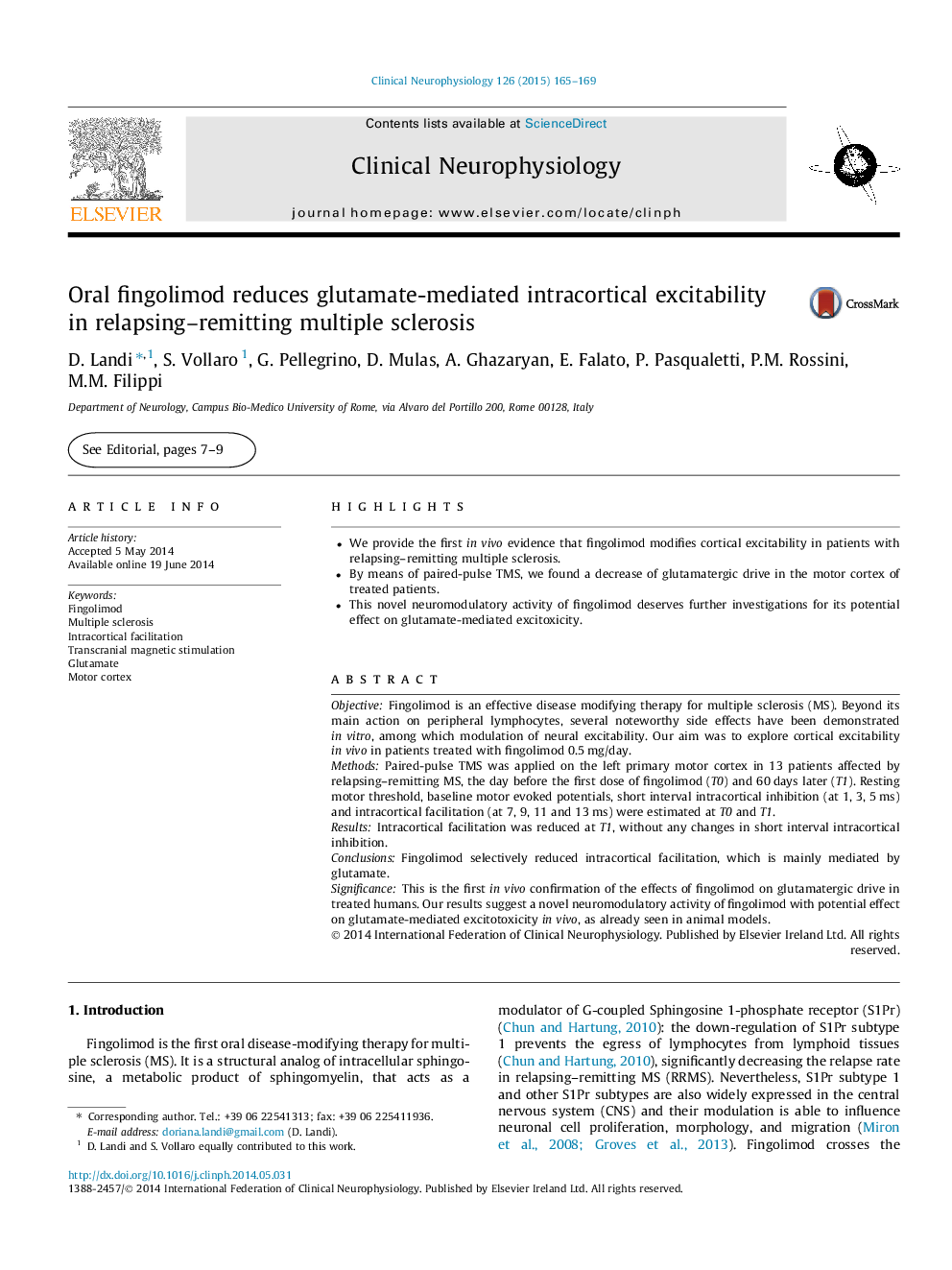| Article ID | Journal | Published Year | Pages | File Type |
|---|---|---|---|---|
| 3043223 | Clinical Neurophysiology | 2015 | 5 Pages |
•We provide the first in vivo evidence that fingolimod modifies cortical excitability in patients with relapsing–remitting multiple sclerosis.•By means of paired-pulse TMS, we found a decrease of glutamatergic drive in the motor cortex of treated patients.•This novel neuromodulatory activity of fingolimod deserves further investigations for its potential effect on glutamate-mediated excitoxicity.
ObjectiveFingolimod is an effective disease modifying therapy for multiple sclerosis (MS). Beyond its main action on peripheral lymphocytes, several noteworthy side effects have been demonstrated in vitro, among which modulation of neural excitability. Our aim was to explore cortical excitability in vivo in patients treated with fingolimod 0.5 mg/day.MethodsPaired-pulse TMS was applied on the left primary motor cortex in 13 patients affected by relapsing–remitting MS, the day before the first dose of fingolimod (T0) and 60 days later (T1). Resting motor threshold, baseline motor evoked potentials, short interval intracortical inhibition (at 1, 3, 5 ms) and intracortical facilitation (at 7, 9, 11 and 13 ms) were estimated at T0 and T1.ResultsIntracortical facilitation was reduced at T1, without any changes in short interval intracortical inhibition.ConclusionsFingolimod selectively reduced intracortical facilitation, which is mainly mediated by glutamate.SignificanceThis is the first in vivo confirmation of the effects of fingolimod on glutamatergic drive in treated humans. Our results suggest a novel neuromodulatory activity of fingolimod with potential effect on glutamate-mediated excitotoxicity in vivo, as already seen in animal models.
